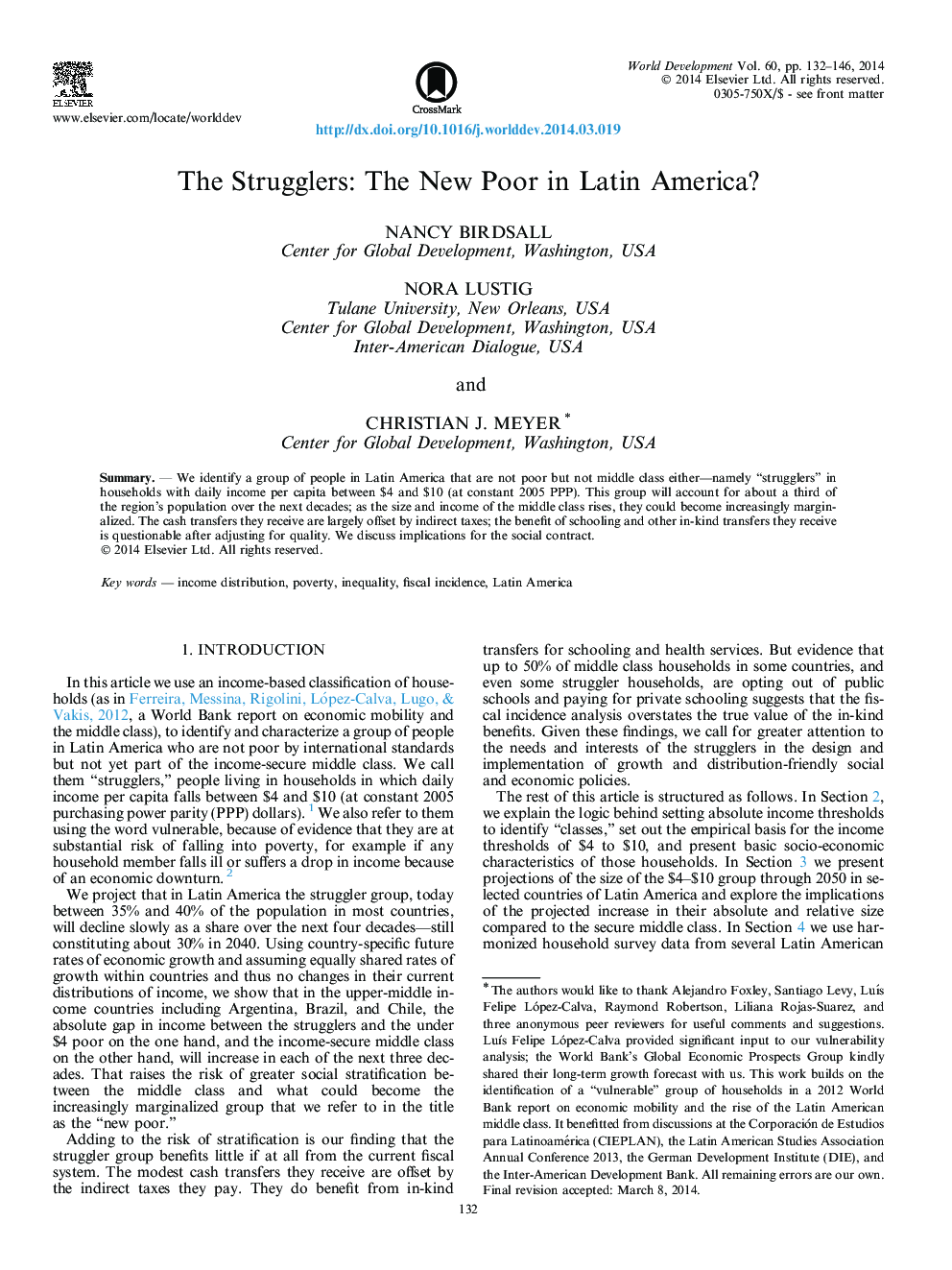| Article ID | Journal | Published Year | Pages | File Type |
|---|---|---|---|---|
| 991655 | World Development | 2014 | 15 Pages |
•We identify a group of vulnerable “strugglers” in Latin America.•Over the next decades, they will account for a third of the region’s population.•Their net benefit from the fiscal system largely derives from in-kind transfers.•These public services are of questionable quality.•We argue that the strugglers will likely risk marginalization in their countries.
SummaryWe identify a group of people in Latin America that are not poor but not middle class either—namely “strugglers” in households with daily income per capita between $4 and $10 (at constant 2005 PPP). This group will account for about a third of the region’s population over the next decades; as the size and income of the middle class rises, they could become increasingly marginalized. The cash transfers they receive are largely offset by indirect taxes; the benefit of schooling and other in-kind transfers they receive is questionable after adjusting for quality. We discuss implications for the social contract.
